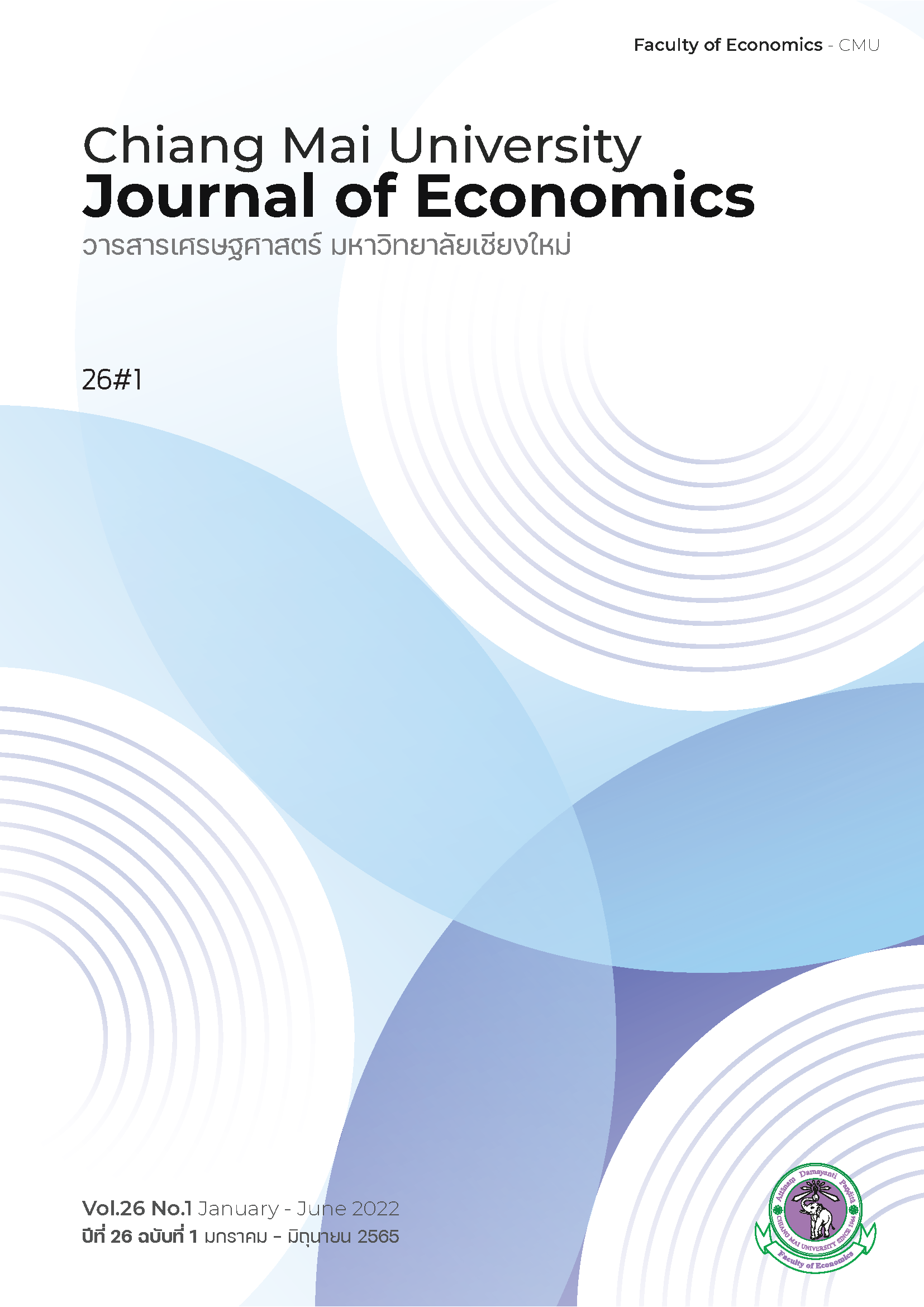An analysis of the effectiveness of the tobacco control policy
Keywords:
tobacco control policy, effectiveness, smoking behaviorAbstract
An analysis of the effectiveness of the tobacco control policy is based on the survey of National Statistical Office (NSO) on smoking and drinking behavior in 2014. The cross-sectional data was collected in June 2014 with the sample of 20,787 persons nationwide. Descriptive statistics and treatment effect models were used to analyze the data. The study found that there were several factors contributing to the increased incidence of smoking such as an individual getting started smoking at the age under 20, drinking alcohol, living outside the municipality, having higher in income, being unemployed or working in agriculture, forestry and fishery sectors, and other basic occupations. The factors were an individual was married, having high educational level and being in the age between 45 to 59 years old, would reduce the chance of smoking. The factors that increase daily dose of cigarette smoking were an individual getting started smoking at the age under 20, drinking alcohol, having higher in income, being in age group between 25 - 44 years old and working as plant and machine controllers, clerical workers, artisans, and related worker or service and sale staffs. The daily smoking dose will decrease if an individual spending more time in their study, living in non-municipal area, being in the age group of 60 and up, working as professionals or working in agriculture, forestry and fishery sectors. An effective tobacco control policy on smoking behavior was a warning picture on cigarette packets policy, public smoking ban policy and price policy.
Downloads
Published
Issue
Section
License
Copyright (c) 2022 CHIANG MAI UNIVERSITY JOURNAL OF ECONOMICS

This work is licensed under a Creative Commons Attribution-NonCommercial-NoDerivatives 4.0 International License.
All opinions and contents in the CMJE are the responsibility of the author(s). Chiang Mai University Journal of Economics reserves the copyright for all published materials. Papers may not be reproduced in any form without the written permission from Chiang Mai University Journal of Economics.






